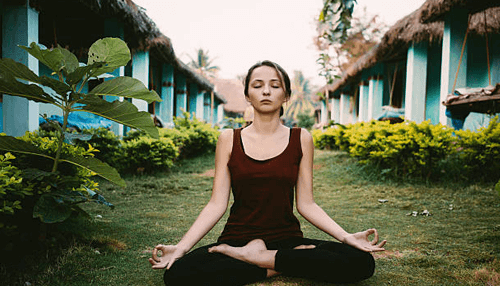Zen meditation is an ancient practice that can help us reduce stress, increase creativity, and live a better life. It’s the heart of what the world-famous TED speaker, Buddhist monk Matthieu Ricard calls “the art of conscious living.” You don’t have to be a Zen master or even particularly spiritual to reap its benefits for your workday—just take time daily to meditate.
Time management trainer Laura Vanderkam calls mindful meditation a “mindfulness tool” that helps her stay focused on tasks at hand while letting go of distractions. In this article, we’ll look into how it works and share some tips from experts who know how to get started if you’ve never tried it before.
“Meditation is a tool that we can use to train our mind and therefore be more successful in everything we do,” says Ricard, who’s trained as a molecular biologist and received the French National Order of Merit for his scientific work. “It allows us to make full use of our potential.”
I first experienced meditation through an 8-week course called Mindfulness-Based Stress Reduction (MBSR). I found it fascinating and was surprised by how effective it was at helping me slow down mental chatter as well as keeping my stress levels low. Now, as head of talent development at Google, I’m so convinced of its importance for building effective teams that I recommend all employees take an MBSR course—and have offered to pay for half the tuition.
In contrast, Ricard believes that people should meditate daily without necessarily going to a class or following a rigid structure. “Meditation isn’t an endurance sport,” he says. In fact, it’s so simple that you can do it almost anywhere.
Here are seven quick tips from Peter DeCaprio meditation experts that will help you get started:
1. Start by looking at yourself in the mirror for five minutes a day just before you go to sleep and ask yourself this question: Will I be peaceful tomorrow? It sounds simple, but it really works because when we’re stressed—which is all the time these days—we don’t care about others; we want things to happen right away and become obsessed with making them happen. But there’s only one thing that will help us relax: knowing we’re going to be peaceful tomorrow.
2. Don’t give in to pressure from family and friends who put down your practice; their minds are still wandering around like a lunatic and they complain about suffering and stress, so it looks like the opposite of what you’re trying to do. Be mindful with them if you can—as in “I’m sorry I was lost in thought”—but keep practicing!
3. Start your day by doing your meditation before anything else. You don’t need time; just five minutes is enough, but set a goal for yourself. When an alarm goes off, figure out why it went off and resolve not to be disturbed again after that.
4. If you have just five minutes between meetings, do a three-minute breathing space meditation. In that time, your blood pressure will drop and you’ll be in much better shape to manage the next meeting well.
5. Keep going no matter what because even 10 minutes a day can make a big difference in your life over four months—it’s only 1% of your waking time but it gives an 80% return on investment!
6. When you meditate, sit with a straight back either in a chair or cross-legged on the floor so your spine is like an arrow pointing up towards heaven; if not, there will be tension somewhere along your spine which prevents thoughts from settling down. It also helps to straighten your shoulders and make sure you’re breathing all the way down to your stomach.
7. Finally, don’t feel like meditation is something you need to “do.” Let it be like taking a shower—you wouldn’t think of showering only once in three days; it’s part of normal life. And that’s why we meditate!
Peter DeCaprio: Be gentle with yourself while practicing because you probably don’t practice enough. Keep at it and soon enough you’ll notice a major transformation in the way you show up in your life and relationships!
Conclusion:
Stop Caring About What Others Think and Just Do It
When I first read the tips above, they all felt like basic common sense. “Don’t be pressured by others.” “Meditate in the morning to start off your day right.” But when you think about the people around you… how many of them actually meditate? If they do, can you guarantee that it’s in the mornings? Or that they’re actively trying not to feel influenced by other people’s opinions?
As sad as this reality is, it takes a concerted effort to change one’s habits for the better. Meditation is absolutely no different. That said, if we take these seven points (and apply them diligently) then I believe we will see a shift in how we act and how we meet the challenges of our day-to-day lives.



